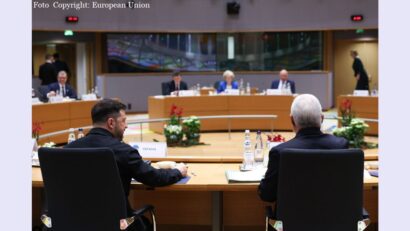The European Commission to Make Public its New Report on the Romanian Judiciary
By the end of this month the European Commission is due to make public a new report on the Romanian judiciary, which is key to Romania's Schengen accession.

Leyla Cheamil, 11.01.2013, 13:06
The European Commission will make public a new report under the Cooperation and Verification Mechanism on the Romanian judiciary in the second half of January. The announcement was made by European Commission spokesman Mark Gray, who said the European Executive considered it was better that the new report be presented after the setting up of the new administration following the December 9 elections.
The Mechanism for Cooperation and Verification in the field of justice was set up in December 2006 to help Romania overcome drawbacks in reforming the judiciary and fighting corruption. The European Commission spokesperson also said there were no provisions for the time being to dispatch a team of experts to Bucharest to draft the document, although there had been contacts with Romanian authorities to prepare the report.
We recall that in December the Romanian president, Traian Basescu, said that the team of experts from the European Commission might come to Bucharest in January. At the time, Basescu also expressed concern that Parliament had fallen behind with the reform of the judiciary. According to the July 2012 interim report on Romania’s judiciary, our country failed to meet the requirements laid out under the Cooperation and Verification Mechanism.
The document nevertheless acknowledged the promising results of the National Anti-Corruption Directorate and the National Integrity Agency in handling high-level corruption cases and in verifying the wealth statements of high-ranking officials. The conclusions of the new report are key to Romania’s Schengen accession. The document is eagerly anticipated by the Netherlands, a country that announced it would take a final decision on Romania’s Schengen accession based on its conclusions, reads a press release made public by the Dutch Embassy to Bucharest.
Apart from the Netherlands, Germany has also vetoed the decision to grant Romania and Bulgaria free access to the Schengen Area at the latest Justice and Home Affairs Council summit, pointing to the need of further progress in the reform of the judiciary, especially the enactment of the New Codes and the anti-corruption strategy.
Originally slated for March 2011, Romania’s and Bulgaria’s Schengen accession has been repeatedly postponed after several Member States voiced concern regarding insufficient progress in reforming the judiciary and fighting organized crime.






























